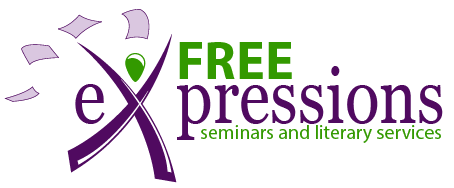 Image 1 of
Image 1 of


Recording: Keep the Wind in Your Sails - How to Give, Take, and Work with Feedback with Lorin Oberweger
While it’s certainly possible for writers to exist in a solitary vacuum, trusting only their own judgment in vetting the success of the story they’re telling, most of us rely on—and grow through—feedback from others. Whether it be critique group partners, beta readers, or paid professionals, quality criticism often means the difference between okay and extraordinary. But finding smart, supportive help with our work isn’t always easy, and it can be particularly difficult to make sense of what feels like conflicting advice, especially within standard critique models.
In this hands-on workshop, we’ll discuss: how and where to find trustworthy critique partners; how to take charge of the critique process; what questions to ask during each phase of the drafting process; how to sort through and prioritize feedback; and how to stay attuned to our “non-negotiables,” ensuring that we keep in touch with the hearts and souls of our stories in a way that helps us maintain momentum and belief in our work.
While it’s certainly possible for writers to exist in a solitary vacuum, trusting only their own judgment in vetting the success of the story they’re telling, most of us rely on—and grow through—feedback from others. Whether it be critique group partners, beta readers, or paid professionals, quality criticism often means the difference between okay and extraordinary. But finding smart, supportive help with our work isn’t always easy, and it can be particularly difficult to make sense of what feels like conflicting advice, especially within standard critique models.
In this hands-on workshop, we’ll discuss: how and where to find trustworthy critique partners; how to take charge of the critique process; what questions to ask during each phase of the drafting process; how to sort through and prioritize feedback; and how to stay attuned to our “non-negotiables,” ensuring that we keep in touch with the hearts and souls of our stories in a way that helps us maintain momentum and belief in our work.
While it’s certainly possible for writers to exist in a solitary vacuum, trusting only their own judgment in vetting the success of the story they’re telling, most of us rely on—and grow through—feedback from others. Whether it be critique group partners, beta readers, or paid professionals, quality criticism often means the difference between okay and extraordinary. But finding smart, supportive help with our work isn’t always easy, and it can be particularly difficult to make sense of what feels like conflicting advice, especially within standard critique models.
In this hands-on workshop, we’ll discuss: how and where to find trustworthy critique partners; how to take charge of the critique process; what questions to ask during each phase of the drafting process; how to sort through and prioritize feedback; and how to stay attuned to our “non-negotiables,” ensuring that we keep in touch with the hearts and souls of our stories in a way that helps us maintain momentum and belief in our work.
